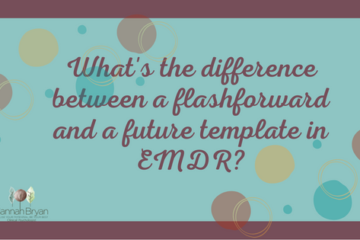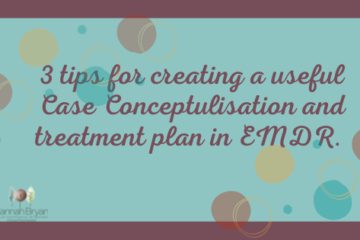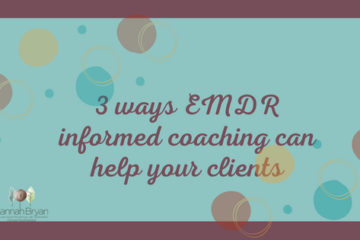This question gets discussed time and time again in my supervision sessions. It’s something that causes a lot of confusion. Many therapists believe that we have to go back to the clients earliest difficult memory. If you are interested in thinking more about this then please do read on.
It gets confusing because in the EMDR community we use so many different words to describe the memories. We use feeder memories, touchstone memories or the earliest memories. Sometimes I’m not actually sure what people mean and whether they are talking about the same thing.
Where did this belief come from?
In 2006 I started my initial EMDR training. I had been qualified as a Clinical Psychologist for 4 years. It had taken me 2 years to gain a Postgraduate certificate in Psychodynamic Psychotherapy. I was working full time, pregnant and generally very busy. So I expect I might not have taken in all of the training information!! For many years I did believe that when working with EMDR, I always had to go back to the earliest memory. This therefore made things quite difficult for me. I was also looking for non-complex simple cases to start work with. I was working in a secondary care mental health service. It just did not make much sense!! I struggled to know where to start with my trauma treatment.
Looking back, I think I got a little confused!! When Shapiro looked at working with current anxiety and phobia she did say to start with the first, then the worst and then the most recent memory. I think many of us held on to this structure and used it for all the cases we were working with.
The importance of case conceptualisation.
So for me, it really does depend where we start our trauma focused work and the memories we choose to focus on. Sometimes we might go back to the earliest difficult memory that is linked to the presenting problem. This is often referred to as the touchstone memory but other times we don’t. This for me is where the importance of case conceptualisation is. If you have worked with me, you will know that case conceptualisation is something that I talk about a lot!! And that’s because I find it contains me and my clients. It helps me plan and sessions and it leads to me being more efficient and effective with the time I have got available.

So it’s important to focus on what the main problem is that I am working on with my client. What do they want to be different? What are their main treatment goals? The work around these questions will help me decide how I can move forward with the treatment.
For example, if I had a client who was involved in an accident at work. They are struggling with intrusive thoughts and dreams about the accident. They are unable to return to the office where it happened. They want to stop thinking about the accident and return to work. When we look at the history, we find out that when they were 13 they were severely bullied at school. This lead to them having to leave school. This might be what we would think of as being the earliest memory, but it does not have a direct link to the presenting problem. It does not link to the clients goals. So unless we get blocked or it comes up naturally during the treatment, I would not choose to focus on that in my treatment plan.
When we would go back to the first difficult memory.
I do think that it is important to identify the touchstone/feeder memories and the early experiences that have happened to my clients. I will generally work through a time line with most of the clients I work with. I would also develop a case conceptualisation with my clients. We decide together the key memories that we need to work on. These memories are always connected to the presenting problem. So we would be aware that these things had happened to our clients. But we might not need to work on them.
If however our client becomes blocked in working through their trauma memory. If the SUDs are not coming down. If they keep going over the same material. Then I might start to look at what the earlier or feeder memories might be that are blocking the processing from moving forward.
So it does depend. We don’t always have to process the earliest memory. I always say to my supervisees, have a good case conceptualisation and a clear reason why you are choosing those particular memories to work with.
Visit my website to see more of my EMDR specific blog posts Click here to find out more.



0 Comments